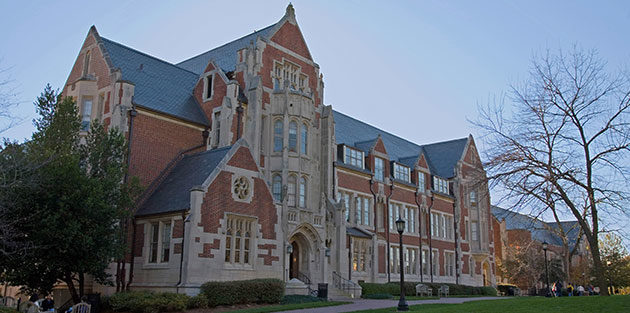The Art of Economics by Schuyler Dugle
Life Is Improv: How Art, Culture, and the Free Market Make the World Beautiful, held at Agnes Scott College in Decatur, Georgia, focused on the intersection of art and economics. Forty-five participants came together for three days of camaraderie, networking, and learning.
Loyola professor of economics Dan D’Amico began the seminar by showing that economics is everywhere, and the laws of human behavior can be found throughout popular culture, including in the television shows Jersey Shore and The Walking Dead. In the same way that economics provides a framework for understanding culture, it governs politics as well, and politicians are constrained by the system in which they work. D’Amico cited Nobel laureate James Buchanan’s sage advice to not hire foxes to protect a chicken coop since foxes eat chickens. In the same way, human nature does not change for politicians upon election.
D’Amico also debated Rachel Ciprotti, a board member of the Georgia Arts Network, on Who Should Pay for the Arts? Ciprotti held that people should be forced to pay for art they do not consume (public funding) while D’Amico argued for private funding of the arts.
Robert Anthony Peters, an actor and producer, spoke on the incentives of both artists and characters. He quoted actor Charlie Chaplin saying, “I went into the business for money, and the art grew out of it. If people are disillusioned by that remark, I can’t help it. It’s the truth.” While many people actively do things for money, it’s important to remember the products, paintings, and films that artists create bring joy and fulfillment to thousands of customers.
Peters further explained how the institutions surrounding art create incentives and rules that artists must follow. Grants comprise over half of a performing arts theater’s operating revenue, while tickets purchased by individuals cover less than half. A theater, like any other business, must always satisfy its customers, be they large donors or individual ticket holders.
James Padilioni, a PhD student at the College of William and Mary, spoke on spontaneous order, jazz, and regulation. He explored the African diaspora and whether the traditions coming from those communities were imported from Africa or created in North America.
Padilioni also noted how Harlem regulators attempted to shut down jazz clubs that catered to all jazz, swing, and hep lovers, regardless of their skin color. Other regulations required employees to possess their own liquor licenses just to work at an establishment that sold alcohol, meaning that some jazz singers like Billie Holiday could not play at local piano bars or gin joints.
Continuing the theme of regulation, Amy Sturgis, who teaches at Lenoir-Rhyne University and the Mythgard Institute, spoke on the recent uprising of young adult dystopian novels and culture. Many of these books explore the (not improbable) case of a government deciding that in addition to owning and regulating your property, it also owns you. Sturgis noted the use of architecture in The Hunger Games to enhance the importance of the state over the individual and concluded that these dystopian novels and films are an accessible method to communicate the ideas of freedom to people.
Students at Life Is Improv learned there is a great deal of overlap between art and economics and left understanding that economics is a loupe by which we may examine and understand art as well as that art can and should be an expression of freedom.
ABOUT SCHUYLER DUGLE
Schuyler Dugle is a member of the Summer Associate Program.


